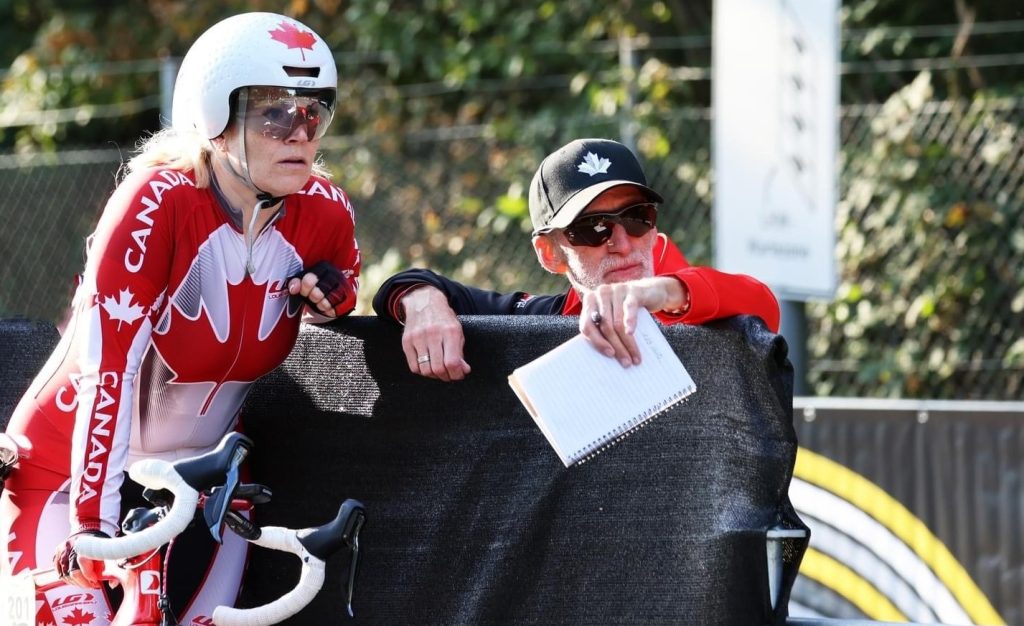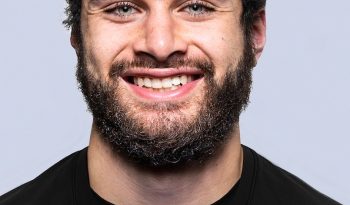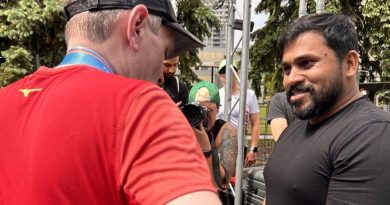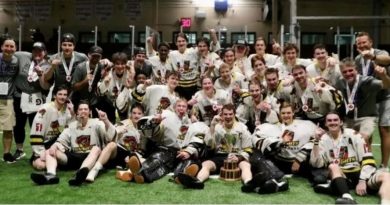Invictus Games a Life-Changing Experience For Double Gold Medalist
By Barrhaven Independent Staff
There is a cliché that says showing up is not good enough.
But for Alaina Mundy and others who competed in the Invictus Games in the fall, showing up was everything.
“You need to be brave enough to stand up in front of the world and just show up,” said the local woman who was a double gold medalist at the Invictus Games.
Mundy is a self-described third generation Army Brat. She followed the footsteps of her father and grandfather and joined the Canadian military, and her husband is in the Canadian military. Her father served a s a combat engineer, which led to her family moving around throughout her childhood.
As a child, she joined Girl Guides.
“A huge part of my life is that I have been a Girl Guide since 1987 – this is a source of personal pride and accomplishment,” she said. “Guiding was my anchor. I knew where ever we landed, there would be room for me. I would have friends on Tuesday nights, and I would get to do all the things that I enjoyed.”
While Mundy’s career was successful and she climbed up the professional ladder, there were some setbacks.
The first happened in 2005, when she was cycling on a training run for a cross base challenge and suffered a significant injury.
The second setback was more serious.
In 2020, Mundy was going through a very stressful and demanding time at work.
“My body was not feeling like it normally did,” she said. “Something was different. My running slowed down. My walking slowed down. I knew something wasn’t right.”
Mundy was diagnosed with Multiple Sclerosis. While Mundy had spent her life meeting challenges head on, the diagnosis left her as a proverbial deer looking into life’s oncoming headlights.
“I had never even known anyone with MS, I had no idea how it would impact my life and I certainly was not ready for the changes,” she said. “It was a very dark time for me and I wallowed in my diagnosis for a few months. I would later realize that this was very reasonable behavior and my feelings about my diagnosis were valid. I learned that I did not have to like having MS – no one does – but I just need to learn how to live well despite it.”
For the next two years, Mundy had to learn to slow down. She had to adjust to a geared-down pace with fewer responsibilities on her plate.
“After struggling with this slow-down phase for a long time, I have finally learned to embrace it,” she said. “I realized that having less on my plate makes me a better person.”
While life takes some bad turns, it also takes good turns.
Munday met two people she calls “MS Champions”.
Stacey Mousseau-Trottier and Levi Bradley had both competed in the Invictus Games, and they shared their experiences with Mundy.
“These two beautiful humans encouraged me to apply,” she said.
Mundy said she did not look sick, but she faked being well.
In November, 2022, she received a letter informing her that she had been accepted to compete Her journey with her team, her peers and the coaches started right away. The team met for the first time in person in Victoria, British Colombia for a training camp in February 2023. Mundy described the camp as exciting and terrifying at the same time.
Each athlete would choose three sports to participate in. She chose discus, seated volleyball, and cycling.
“The Athletes had chosen their sports and the sports I chose would push me out of my comfort zone,” she said. Cycling was the one event that would force her to knock down a mental barrier.
“On a downhill stretch, my bike flipped and I landed on my head, shoulder and tumbled for some time,” she said of her 2005 crash. “After a visit to the hospital, it was discovered that I had fractured my left collarbone, right radial head (elbow) and had a neck injury. It took eight weeks to heal enough to return to work and over the next year I would need to work hard to regain full mobility and strength.
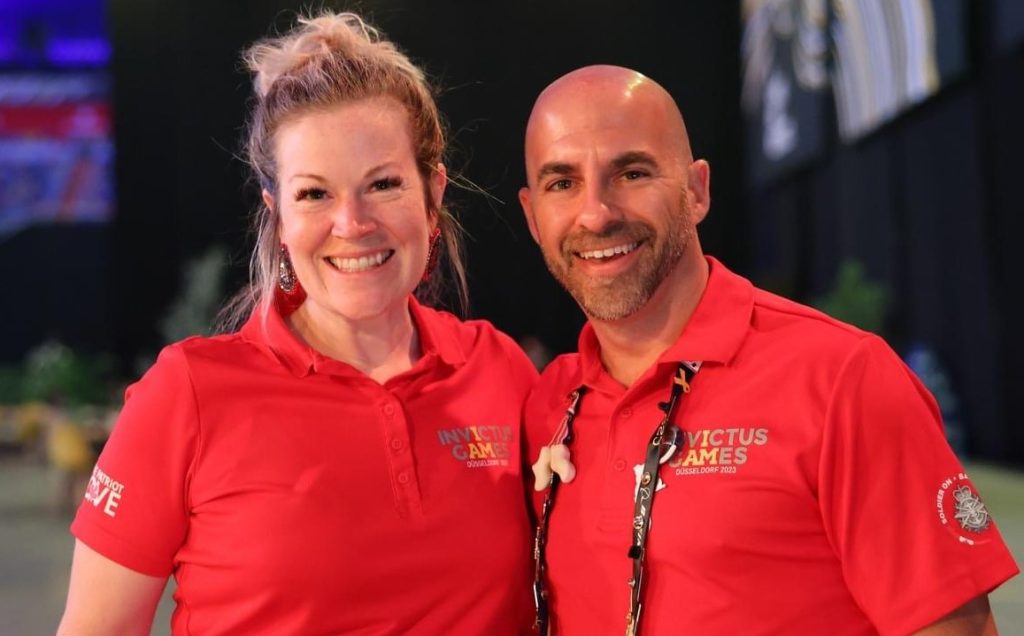
“This was my mountain to climb – getting back on the bike. I now believe this was not a push outside my comfort zone but rather a jump from cliff called comfort zone.”
Mundy found another mental hurdle in writing her biography, which was a requirement for the Canadian team.
“I had not been public about my diagnosis,” she said. “I wasn’t brave enough yet and I was worried that others would think differently about me. The truth is that I was very wrong. My diagnosis is not a failure, it is not my fault and I was thankful to be surrounded by amazing humans as I put pen to paper and finished that biography.”
Under careful supervision from the coaches at Triple Shot Cycling, Munday got back on the bike and “peddled my heart out.” She thrived from the encouragement given to her by her coaches.
“I trained hard,” she said. “I borrowed a Peleton from a friend and I peddled whenever I could. I fell in love with great virtual instructors. As soon as the cycling season opened, I got outdoors and embraced my fears of cycling in traffic. At our second camp in May 2023 in Winnipeg, we cycled though Birds Hill Park and the feeling of freedom and bliss increased. I learned how to cycle one handed – that was a big deal. My coached adjusted my training programs and I joined the Ottawa Bike Club (OBC) so that I could meet more local cyclists. OBC offered Time Trials every week and they became my benchmark in my weekly schedule.”
At the end of the second staging camp, Mundy and Bernard Caissie were asked to be Co-Captains of Team Canada.
“This was a huge honor and Bernard and I accepted,” she said. “We have had the opportunity to help many of our teammates, advocate for sport as a road to recovery, and engage with stakeholders who can hear our stories and make tangible change. To be asked to represent your country is one thing, but to be asked to support your team as a Captain is something entirely different.”
Mundy was joined by family and friends at the Invictus Games in Germany. She said it was special to share that special week with the people closest to her.
Mundy won her first of two gold medals after her cycling time trial. She was unaware that she had won gold until a teammate told her and congratulated her.
“Invictus is not about medals, PBs or best times – it’s about showing up, doing your best and cheering on your friends as they climb mountains in front of you,” she said. “We all have fears, hesitation and anxiety – this completion brings new meaning to facing your fears or being thrown off that cliff called comfort zone. I saw humans missing limbs battle the water, I saw humans with little sight take corners on the racetrack, I held my breath knowing how much each push meant to these humans how one more footstep was all they had to give. For some, just being present at the games was a feat, battling with mental health issues meant that just being present and cheering on their comrades was all that they could give.”
For Mundy, one of her lasting memories from the games is not a personal achievement. It is seeing a teammate overcome physical and emotional challenges to compete.
“One of my favourite team members was injured playing wheelchair basketball in the first few days of the games” she said. “One of his goals was to have his two girls watch him compete for Canada as they were very small and do not remember him in uniform. I could tell he was injured and that it was a struggle for him to continue in the competition. Despite separating his shoulder and sustaining a concussion, he still competed. He still showed up daily to cheer on his teammates. I even watched him pivot during the archery competition and operate his bow with his mouth rather than his injured arm. This is the spirit of Invictus – doing your best, showing up and taking a knee if you need it.”
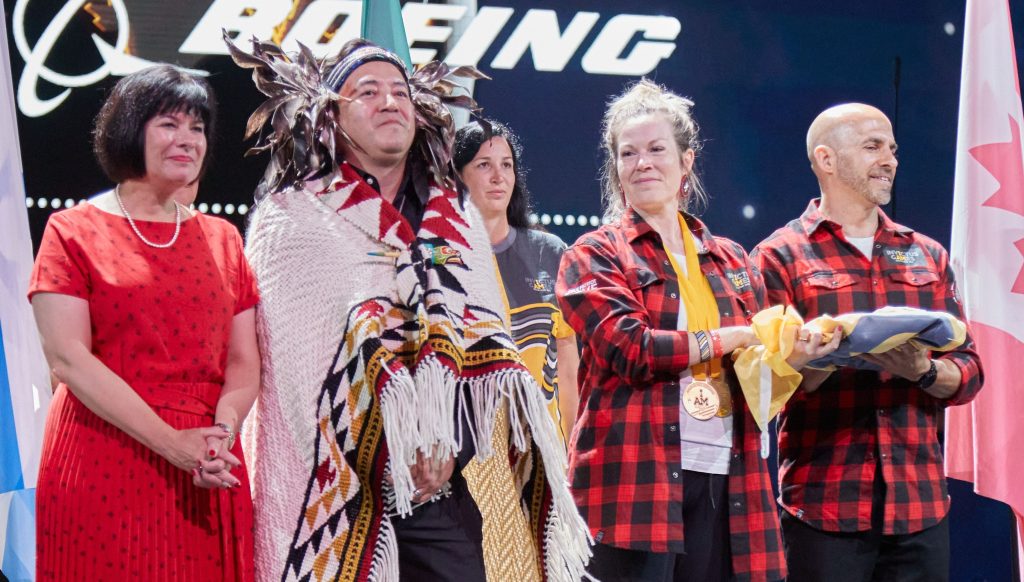
Although the event was only a week long, Mundy made deep connections that will last a lifetime.
“The connections with my competitors was a big highlight,” she said. “Meeting humans like Katrina Brown, a UK Invictus Games Competitor and having her touch my soul so greatly was unbelievable. The moments we shared during the cycling competition, the tears we shared were meaningful. I actually did not know I had won the gold medal in the time trial. I was hugging Katrina and celebrating her silver medal achievement and she pushed me back and said ‘You don’t know, do you. You won gold.’ The tears were real in that moment, I did know and I was so emotional that she told me. It meant the world. Once you share that moment, you are connected on a human level.”
At the end of the Games, Mundy and Caissie accepted the Invictus Games Foundation Flag on behalf of Canada, as the next Invictus Games will take place in Vancouver in 2025. She described that experience as surreal.
“Standing on stage, looking at the crowd, seeing how proud the Duke and Duchess were in the moment, was the pinnacle of this event,” she said. “I loved the opening, I loved the competition, but I really loved accepting the flag on behalf of our nation.
Mundy describes the experience as life changing. It has given her strength, courage and perspective as she helps others in the Canadian military’s Solder On program.
“The experience was amazing,” she said. “The Invictus family will be part of my life forever. I am still processing it. I want to share the message of Invictus with everyone. Recovery through sport, and healing through sport is possible.
“And the most important part of the process is to get to a place where you can just show up.”

